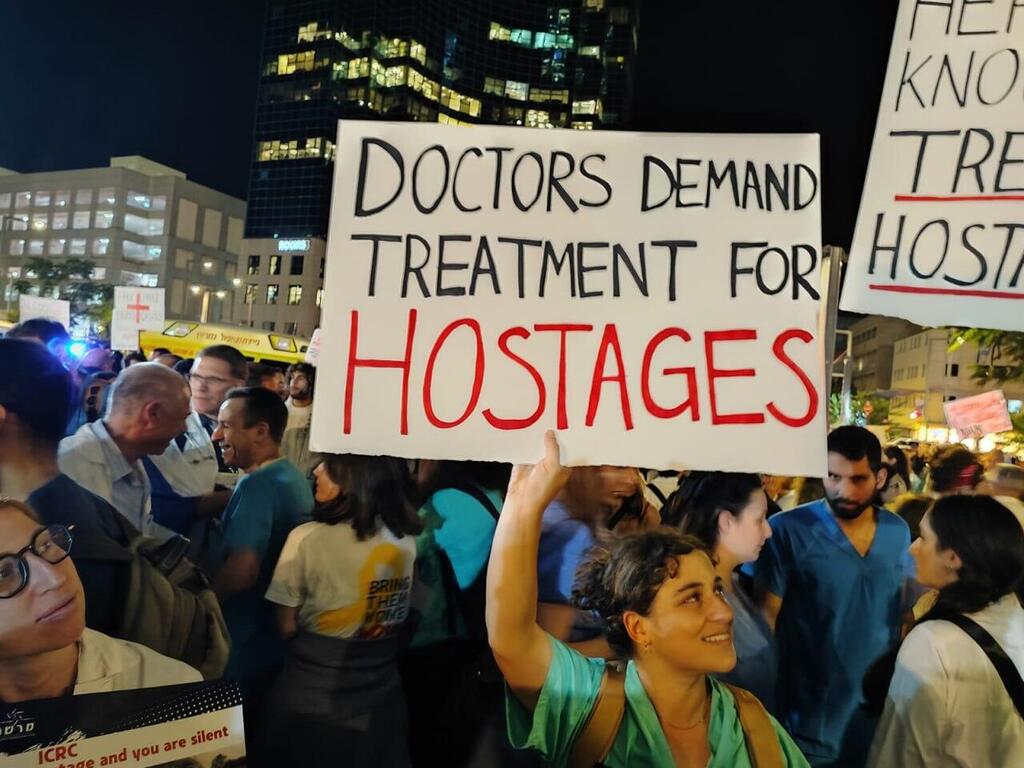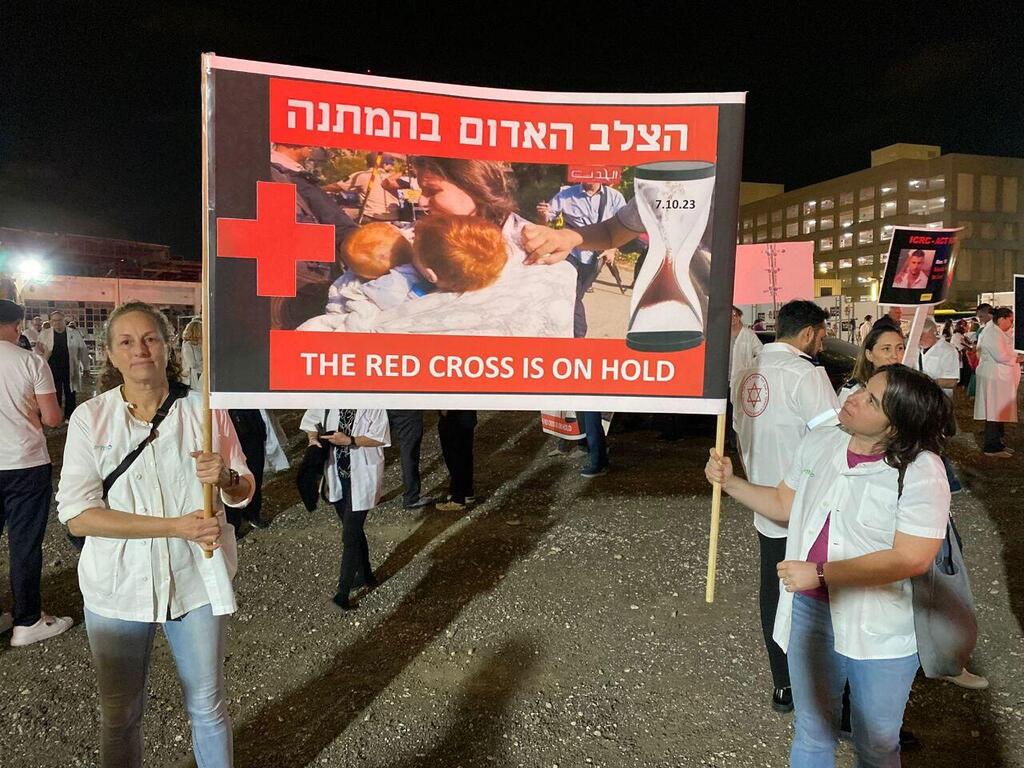Interview with Red Cross spokesman on ynet Live
(Video: Shmulik Dudapur)
As pressure to bring about the release of Hamas hostages intensifies in Israel, the International Committee of the Red Cross claims to be doing everything possible to bring about their release. The organization’s spokeswoman, Aylona Synenko, told Ynet, “We continue making efforts, asking and demanding this information. Again, we are a humanitarian organization, we are there to provide services, and when we are given the opportunity to do so, we deliver.”
Read more:
When asked to specify which organization is monitoring the needs of the hostages, Synenko replied: “As a humanitarian organization, we have the role of a neutral intermediary, and we have managed until today to facilitate the release of 4 hostages, but of course, it is far from enough, because there are more people that are being held and it’s unimaginable, the suffering their families are going through.
“Since Day one, we have said publicly a number of times that taking hostages is against the international humanitarian law, that they should be immediately released and we have also been asking and continue doing so, to get access to them and bring food, medicine and also give the new to their families.”
It’s your job, by definition, to at least verify the hostages receive basic conditions.
“It is our job to provide humanitarian assistance to all civilians who are affected by violence and hostages are clearly part of those civilians, but for us to be able to do our job, we need to be provided access. We also need diplomatic solutions to have the neutral humanitarian space that we need to be able to operate.
“This is why we have been working continuously, making efforts at all different levels, including humanitarian diplomacy at the highest possible level, including the action that our team is doing every day on the ground.”
Do you have any access at all to Hamas leaders or hostages from Hamas?
“We are talking with Hamas at all different levels, inside and outside Gaza and we continue demanding access, but we are a humanitarian organization, we cannot force ourselves through the bullets and through the bombs unless this access is given to us.”
2 View gallery


Israeli doctors protest against Red Cross in demand organization visits hostages in Gaza
So you're in contact in Gaza. What did they tell you?
“We continue demanding access, this is one of your highest priorities and this is the work that is taking place behind closed doors every single day. It is not because the details of these efforts are not shared publicly, because this is also our experience, because this work has the best results when it takes place behind closed doors. It doesn’t mean we’re not doing what we’re supposed to be doing, demanding access.”
Can you ensure us, at least, that Kfir, 10 months old, is getting his formula, that Ronan who’s diabetic is getting his medicine, that Corinna, who just recovered from cancer, is still on meds. Can you reassure us?
“Again, this is something that our colleagues in Gaza work every single day, to be able to get this information and access.”
Douglas Murray, a British journalist who has been vocal about his support for Israel from the war’s onset, was in the Ynet studio to ask questions as well, and his was about both Hamas and the ICRC’s demand to receive fuel from Israel before any hostage release is successfully facilitated, “Is there any other situation you can think of in a war, where one side has been asked to fuel its enemies?”
Somewhat bewildered by the question, Synenko eventually said: “We are a humanitarian organization, and our job is to provide relief to civilians, whoever the civilians are, so whether these are Israeli civilians or Palestinian civilians we need to provide them with all the services.”





